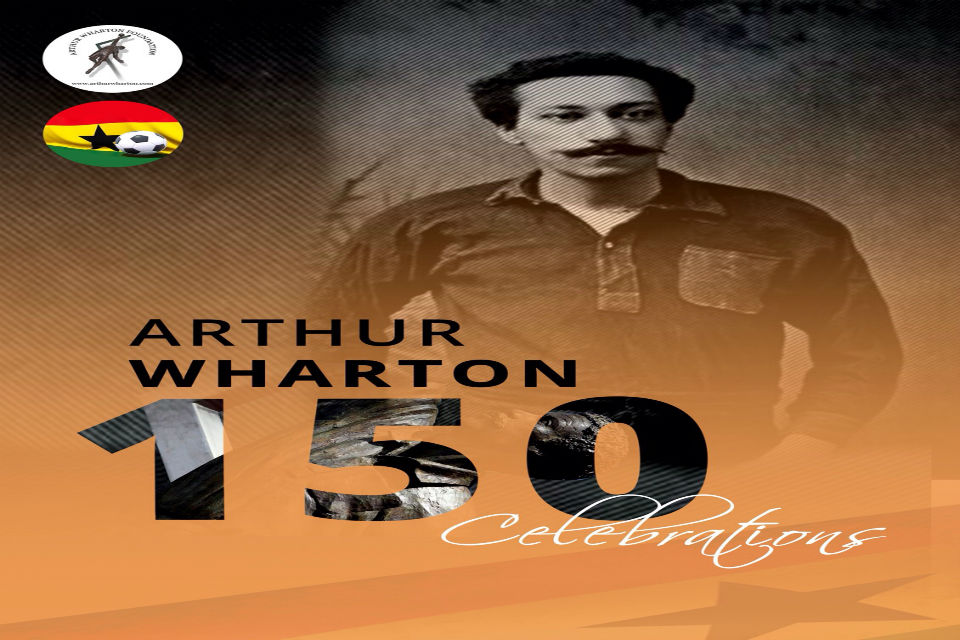150th anniversary of Arthur Wharton
British High Commissioner's speech at the 150th anniversary of Arthur Wharton.

We gather this evening to mark the 150th anniversary of the birth of a great Ghanaian. Arthur Wharton was born in Jamestown on this very day in 1865. His father was from Grenada but his mother was a member of the Fante Akan royal family. In 1882, Arthur travelled to England at the age of just 17, in theory to train as a missionary;
But whilst studying, Arthur began playing football. He went on to represent a host of English teams in the earliest era of organised football leagues, including Rotherham United, Scunthorpe United, Preston North End and Darlington, making him the world’s first black professional footballer;
Arthur was also a keen athlete and in 1886 became the first man to be recorded running 100 yards in under 10 seconds. This event took place at Stamford Bridge, home of Chelsea FC. L & G - the next time the world sees a man run 100 yards in 10 seconds at Stamford Bridge it may be Jose Mourinho being chased off the premises next weekend!
A statue of Arthur was unveiled last year by HRH Prince William, at St George’s Park, England, home to the English Football Association’s National Football Centre. That was the culmination of years of work by the Arthur Wharton foundation whose work we praise and celebrate here tonight, with a particular word for its founder Shaun Campbell whose determination and leadership we salute.
It is right to both commemorate Arthur himself – after all, I personally believe he deserves much more recognition here in Ghana itself as a famous son of this nation – but also to use his legacy as part of the continuing and necessary campaign to rid football of racism. In the UK, we have come a very long way. We needed to – I remember well the commonplace racism shamefully directed at black players when I first started going to games in the 1970s.
Now, I am glad to say, the most likely thing to happen to anyone being openly racist at a British football ground is that they will be arrested, possibly charged and probably banned for life from that stadium. But the task of fighting racism is always a work in progress, in the UK and elsewhere, including in parts of our own European continent where, sadly, racist chanting or booing is still too commonplace.
Nor should we think that other continents and places are immune from lesser manifestations of the same problem. I was for example quite shocked to read some of the social media comment some Ghanaians posted earlier this week on learning that a Ghanaian club had appointed a Japanese coach, and I salute those other Ghanaians who picked those people up for their unacceptable comments. We can all fight all forms of racism in football, anywhere and everywhere, as part of Arthur Wharton’s legacy.
In finishing these brief remarks, I recall again Arthur’s heritage from Jamestown, the historic centre of old Accra which has sadly fallen into disrepair in many aspects.
Given our colonial history, I believe we have a continuing moral obligation to help where we can in Ghana’s journey towards full economic development. Jamestown is a worthy recipient of any assistance that we are able to give.
So, BHC is working closely with traditional leaders, JustGhana and the Ghana Museums and Monuments Board towards restoring the James Fort; we are supporting JustGhana towards refurbishing the Jamestown War Memorial and to erect an information board recognising the contribution of the Gold Coast Regiment in World Wars I & II but also in other military campaigns with the British armed forces; and we are honoured to be supporting GUBA – the premier organisation in the British-Ghanaian diaspora in the UK, led so effectively by the wonderful Dentaa Amoateng who is here with us tonight - towards their project aimed at improving sanitation, alleviating cholera and reviving tourism in Jamestown through education, provision of public conveniencees, efficient waste management system and tourism promotion projects
Thank you for being with us this evening, thank you for helping us to honour Arthur Wharton, and I end with a commitment that the British High Commission will continue to be a firm friend of Ghana in building a legacy which befits Arthur’s achievements.